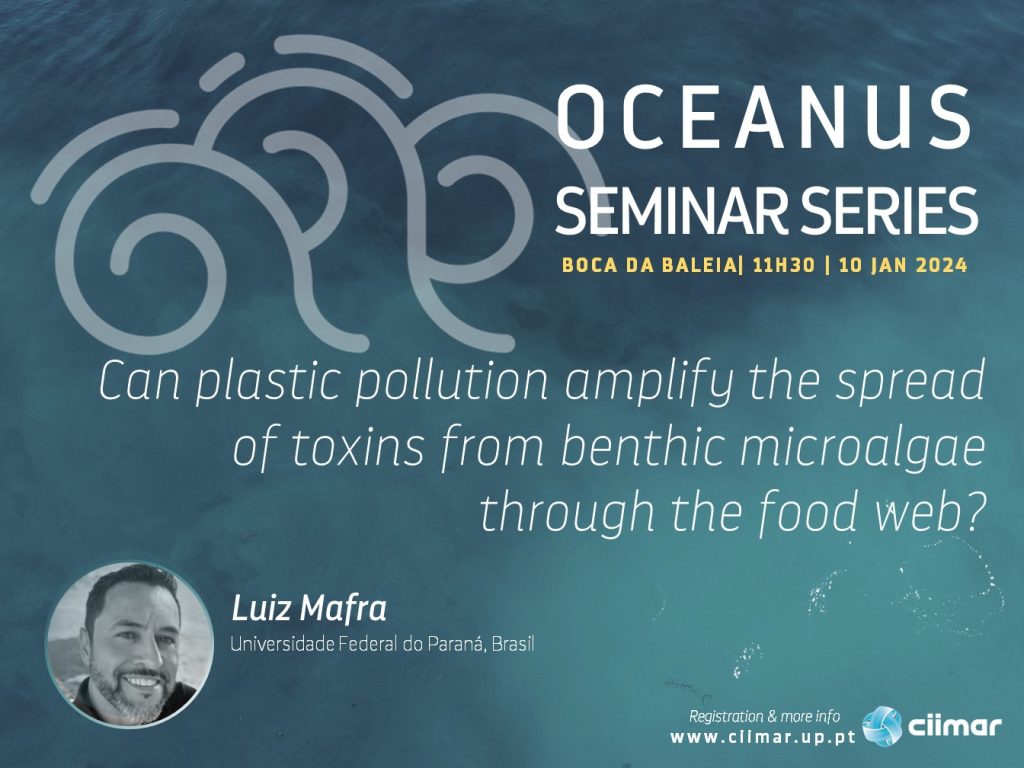Oceanus Seminar series | 10 Jan 2024 | Luiz Mafra | 11h30

Title: Can plastic pollution amplify the spread of toxins from benthic microalgae through the food web?
Marine plastic debris provides a significant surface area for potential colonization by harmful microalgae and for the adsorption of their toxins. In a series of laboratory trials and analyses, we demonstrated that the colonization of benthic microalgal cells and the adsorption of lipophilic toxins depend on the exposure time and different characteristics of the plastics, including polymer composition and the particle size, shape and aging degree. We also measured the toxin uptake and potential harmful effects of plastics, coated or not with toxins, in different marine organisms. Finally, we quantified the available surface area of plastics of different sizes and shapes in the ocean to evaluate the potential role of floating plastics as vectors for the transfer of toxins with potential implications to human and ocean health.
Name: Luiz Mafra
Luiz Mafra is an Associate Professor at UFPR/Brazil. As an oceanographer (MSc, PhD in Biology), his studies have focused on harmful algal bloom ecology, feeding mechanisms and toxin kinetics in bivalve mollusks and other marine organisms, contributing to improve monitoring of biotoxins and to prevent human intoxication cases in underregulated areas. First working with planktonic marine HAB species, he has recently focused on benthic dinoflagellates and, more recently, on the potential interactions among harmful algae, toxins and plastic pollution.
The seminar will take place at CIIMAR headquarters (Boca da Baleia Auditorium).
External members of CIIMAR should send an email to divulgacao@ciimar.up.pt, requesting authorization to enter the Leixões Terminal area
If you are a CIIMAR member you can also access last seminars recordings through the LINK.
Website by: Glitz Design